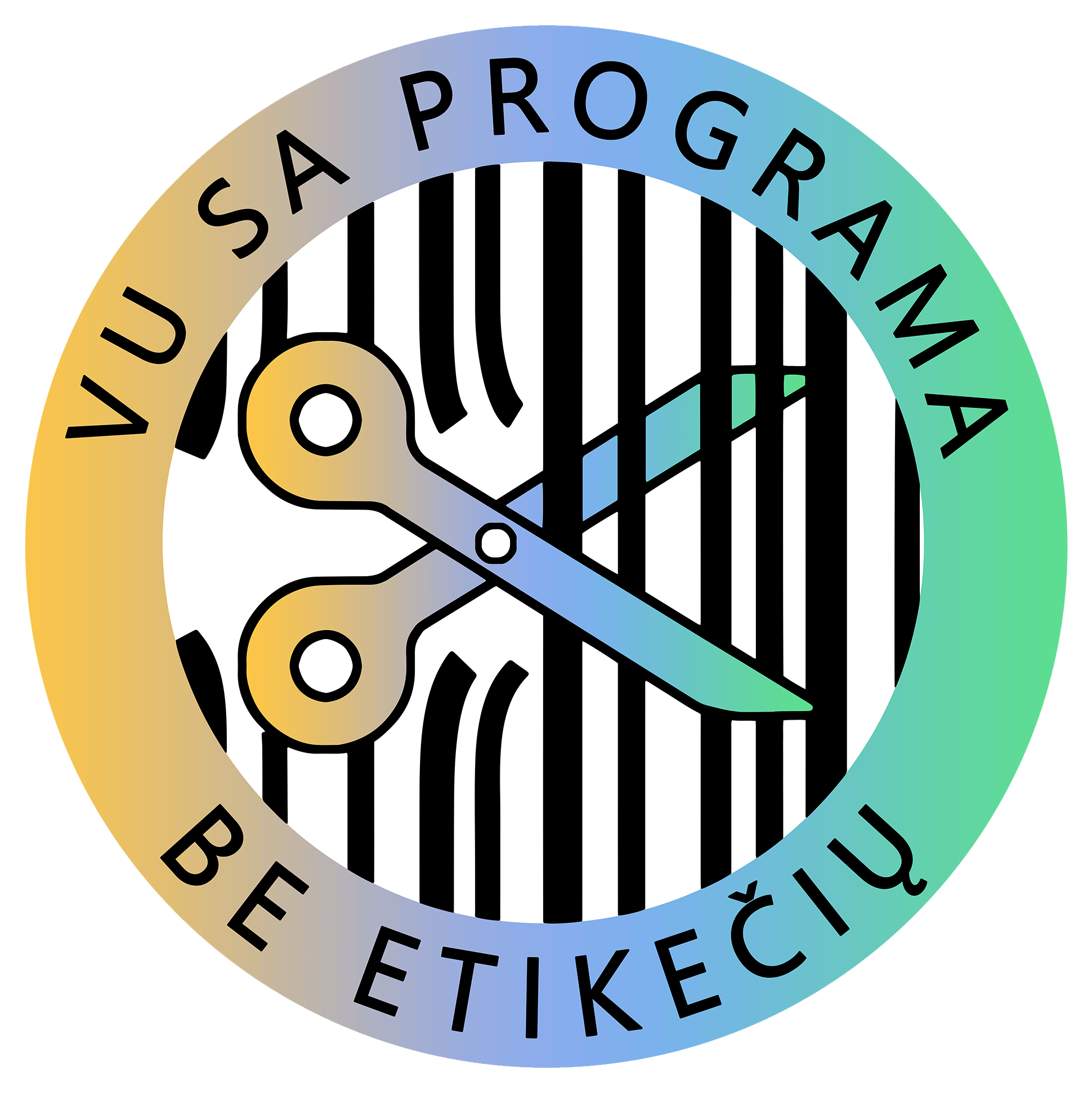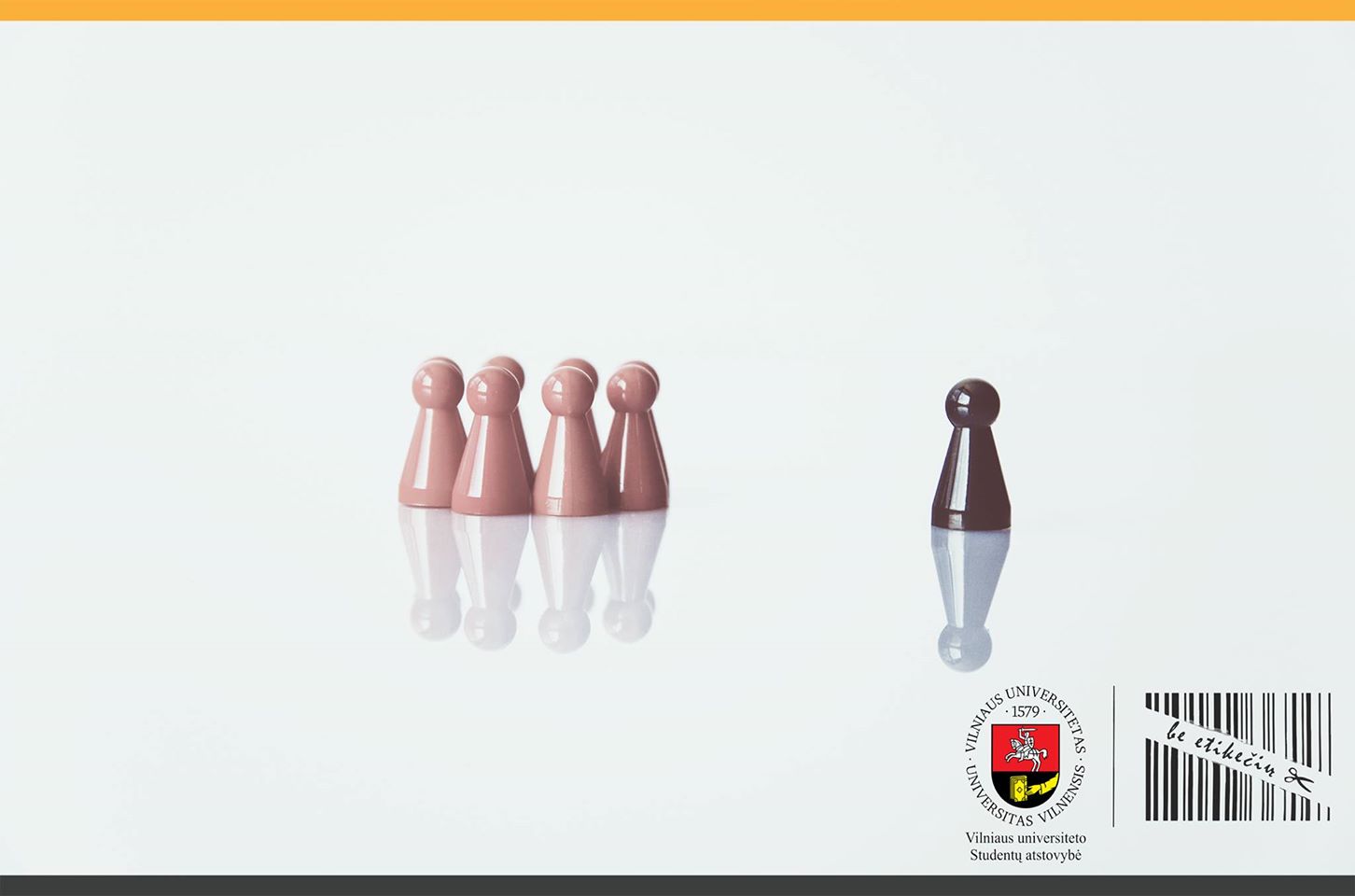Next week (18- 24 March) is a week against racism. For this occasion ESN ( Erasmus Student Network), the European Foundation of Human Rights and ,,Be etikečių” are organizing events and lectures about racism.
Now we are inviting to take a deeper look and read an article about racism in Lithuania.
Racing with racism
Before tackling the racism issue, it is important to analyse the meaning of this word.
In Oxford dictionary racism is defined as Prejudice, discrimination, or antagonism directed against someone of a different race based on the belief that one’s own race is superior. Thus it is a hatred toward other races. Naturally, we have to pose a question: what is race? In the same dictionary race is defined as Each of the major divisions of humankind, having distinct physical characteristics and A group of people sharing the same culture, history, language, etc.; an ethnic group. Now we can see that this word is problematic – race can be understood as a group of people having similar physical OR same cultural, social historical background. In this context we should understand this word in both terms because race is something that defines our identity and unfortunately makes some people feel anger or fear towards others.
Nevertheless, we have laws that forbid segregation or discrimination towards other ethnic groups but in reality we can see or even become the victims of racism. According to Shadow Report about Racism & discrimination in employment in Europe 2013-2017 in Belgium, job applicants with foreign sounding names have 30% less chances for being invited to job interview compared with similar profile but Flemish sounding names and In Spain 28% of migrant women hold a university degree, compared to 28,3% of Spanish women, but they are still overrepresented in low-skilled jobs. Also, in Estonia people from African countries who can be identified as Muslims have experienced racism and exploitation by their employers, colleagues and clients more than other groups. In this research it is said that anti-discrimination laws exist in many European countries but in some of them there is a lack of enforcement, especially because redress procedures are too costly or there is a lack of awareness of these institutions.
Now we should take a closer look to the issue of racism in Lithuania. In many researches and articles it is said that there is a huge difference between data and reality about hate crime and hate speech towards other ethnical groups. It might be because victims of racism are afraid to report such crimes and even though they do this it is a high risk that the court may interpret such crime as a violation of public order how it was done with two young men in March 2017 who threatened a pregnant woman in Kaunas, and insulted her husband, an Irish citizen of Indian descent. According to Newsmavens the similar story was in July 2018 when an Ecuadorian immigrant was beaten up by thugs shouting ‘Lithuania for Lithuanians’. In the beginning the police announced that the victim did not report the crime and what the attackers were shouting at him. Later on, it was found that misunderstandings resulted from a language barrier and officers admitted that it was a hate crime. After pressure from human rights groups and politicians police forces apologized on Facebook and the suspects were arrested.
Danguole Kleinaitytė MA in Understanding and Securing Human Rights 2016 graduate from School of Advanced Study, University of London in her article UN Decade for People of African Descent: A Case of “hidden” Afrophobia in Lithuania stated that in Lithuania the majority of complaints about racist hate speech were received from People of African Descent. In addition to this she found out why some Lithuanians feel negative about African people: I realized that a self-image of Lithuanians as “innocent sufferers”, emphasising the suffering aspect of Lithuanian history – domination and forceful assimilation by Poles and Russians, continues to manifest itself in the form of a distinct distrust of outsiders, xenophobia and racism.
To conclude, we have to understand that nevertheless we have the laws that forbid segregation and discrimination towards other ethnic groups, hate crime and discrimination still exist even though we do not have enough data. Thus what we can do? Firstly, to report such crimes when we see it to show that there is a huge problem. Secondly, we have to change peoples’ mind-set through education but we have to be patient: it takes much time but it is the most effective way to combat racism.
Sources:

